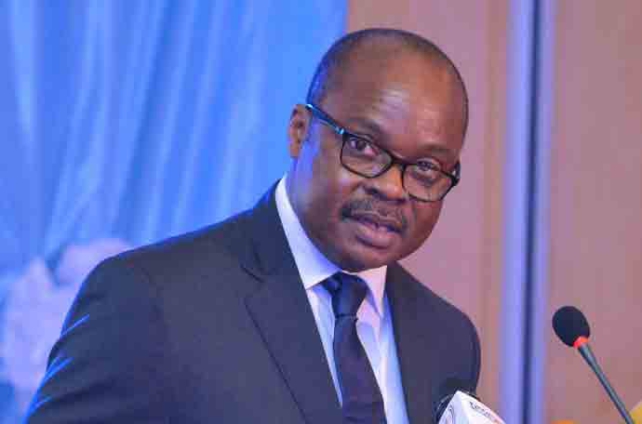Banks operating in Ghana wrote off ¢2.086 billion as bad debt in 2021, a 4.7% decline over the previous year, the Domestic Money Bank’s Income Statement by the Bank of Ghana has revealed.
In 2020, the provision for bad debt was ¢2.183 billion.
The provision for the bad debt was as a result of loan losses, depreciation, amongst others.
According to the Monetary Policy Report, asset quality risks have remained elevated this year compared to last year due to repayment challenges associated with the COVID-19 pandemic as well as some bank-specific loan recovery challenges.
Subsequently, the NPL ratio increased from 14.8% in December 2020 to 15.2% in December 2021.
This was attributed to the combined effect of an increase in the stock of NPLs by 16.0% to ¢8.2 billion, as well as a modest growth in the stock of gross loans by 12.6% over the period.
The adjusted NPL ratio excluding the fully provisioned loan loss category however, improved to 5.8% from 6.5% in the previous year, an indication that the increase in the NPL ratio was due to a build-up of loss category loans.
The rise in the NPL ratio was mainly driven by a marginal increase in the private sector NPL ratio from 15.9% in December 2020 to 16.2% in December 2021, while the public sector NPL ratio increased from 3.3% to 6.1% over the same period.
The increase in the industry NPL ratio reflected mainly in the construction; agriculture, forestry and fishing; transport, storage and communication; and the commerce and finance sectors.
The NPL ratio of the construction and the agriculture, forestry and fishing, and the commerce and finance sectors increased by 12.7 percentage points, 9.2 percentage points and 2.9 percentage points to 35.2%, 29.0% and 20.3%, respectively, during the review period.
Additionally, the transport, storage and communication sector recorded an increase in its NPL ratio by 6.0 percentage points to 13.7% over the same comparative period.
The Central Bank said all other economic sectors recorded declines in the NPL ratios during the review period with the greatest improvement in the quality of the loan portfolio attributed to the electricity, water and gas sector.
Banks reported net tightening in overall credit stance in 2021
Meanwhile, banks reported a net tightening in the overall credit stance on loans to enterprises during the December 2021 Credit Conditions Survey relative to the October 2021 survey round.
Banks therefore project a further tightening in the overall credit stance on enterprise loans in the first two months of 2022, in line with past trends.
“The expected net tightening in the stance on corporate loans is from a projected net tightening in the stance on loans to all sub-categories of enterprise loans”, the Central Bank added.
.
Latest Stories
-
Prof Opoku-Agyemang donates to Tamale orphanage to mark her birthday
58 mins -
Don’t call re-painted old schools brand new infrastructure – Prof Opoku-Agyemang tells gov’t
2 hours -
Sunon Asogli plant will be back on stream in a few weeks – ECG
2 hours -
ECOWAS deploys observers for Dec. 7 election
2 hours -
73 officers commissioned into Ghana Armed Forces
2 hours -
Impending shutdown of three power plants won’t happen – ECG MD
2 hours -
Ghana shouldn’t have experienced any ‘dumsor’ after 2017 – IES Boss
3 hours -
Lamens flouted some food safety laws in re-bagging rice – Former FDA Boss Alhaji Hudu Mogtari
3 hours -
Afcon exit: Our issue is administrative failure and mismanagement, not lack of talent – Saddick Adams
4 hours -
WAPCo to commence major pipeline maintenance and inspection from November 25
4 hours -
CEO of Oro Oil Ghana Limited Maxwell Commey listed among the 100 Most Influential People Awards, 2024
4 hours -
Power crisis: Amandi is off due to maintenance, not debt – ECG Boss
4 hours -
Votes cast for late Akua Donkor to be declared invalid – Electoral Commission
5 hours -
You can’t keep “incompetent” Otto Addo for the long term – Countryman Songo
5 hours -
Joy FM holds 2024 Prayer Summit for Peace
5 hours

